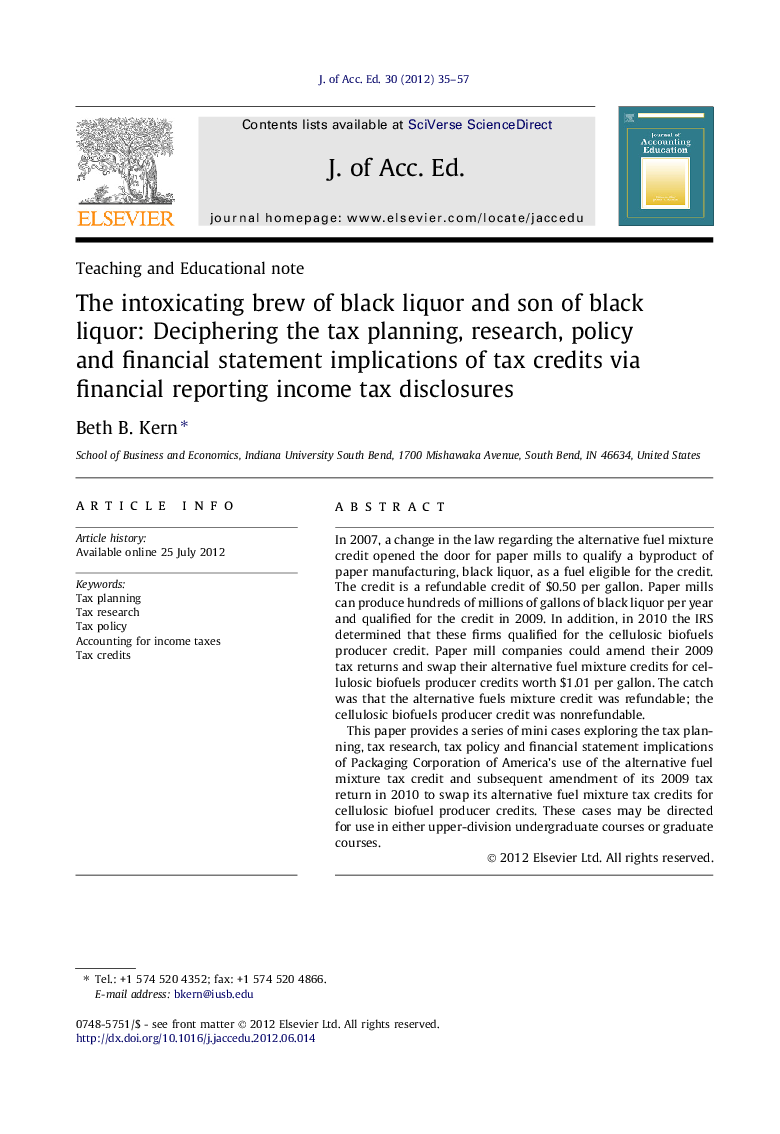| Article ID | Journal | Published Year | Pages | File Type |
|---|---|---|---|---|
| 359403 | Journal of Accounting Education | 2012 | 23 Pages |
In 2007, a change in the law regarding the alternative fuel mixture credit opened the door for paper mills to qualify a byproduct of paper manufacturing, black liquor, as a fuel eligible for the credit. The credit is a refundable credit of $0.50 per gallon. Paper mills can produce hundreds of millions of gallons of black liquor per year and qualified for the credit in 2009. In addition, in 2010 the IRS determined that these firms qualified for the cellulosic biofuels producer credit. Paper mill companies could amend their 2009 tax returns and swap their alternative fuel mixture credits for cellulosic biofuels producer credits worth $1.01 per gallon. The catch was that the alternative fuels mixture credit was refundable; the cellulosic biofuels producer credit was nonrefundable.This paper provides a series of mini cases exploring the tax planning, tax research, tax policy and financial statement implications of Packaging Corporation of America’s use of the alternative fuel mixture tax credit and subsequent amendment of its 2009 tax return in 2010 to swap its alternative fuel mixture tax credits for cellulosic biofuel producer credits. These cases may be directed for use in either upper-division undergraduate courses or graduate courses.
► Provides five mini-cases for either undergraduate or graduate courses. ► Focuses on tax planning, tax research, tax policy and accounting for income taxes. ► Setting is an actual firm’s use of a tax credit worth millions of dollars.
